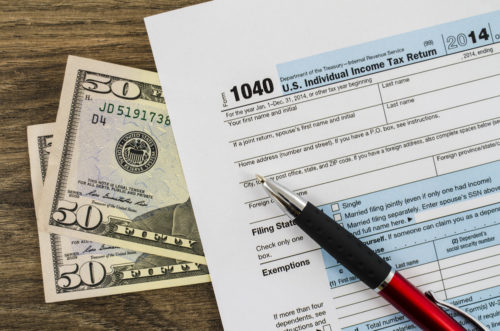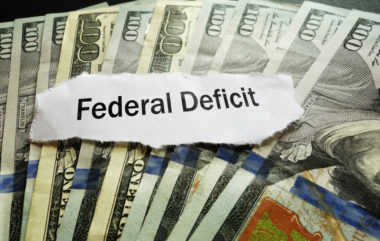Each year, the U.S. government expects you to pay a number of taxes. One of those is known as the Federal Income Tax, a tax levied by the U.S. Internal Revenue Service (IRS) and is based on the annual earnings of individuals, corporations, trusts, and other legal entities.
Federal income taxes are built on a progressive tax system, which means the more money you make, the higher your tax rate is likely to be. Taxpayers who earn an amount that is below the annual threshold set by the government pay little to no taxes, while workers who earn more than six figures will have a mandatory tax rate that is applicable to their income. Income tax brackets also vary depending on your marital status, and how many dependents you have.
Federal taxes are used to pay for the growth and upkeep of the country based on our annual budget. Typically, federal taxes go towards major expenditures, such as health programs like Medicare and Medicaid, social security, and defense and military spending.
Income taxes are part of what makes the country’s most important social services function as they should. So what happens if you don’t pay your income taxes?
Table of Contents
IRS Penalties and Interest
Everyone’s tax situation is different, but regardless of your individual circumstances, the penalties for not paying your taxes, or simply filing your taxes late, can be severe. The IRS applies late penalties and interest on a case-by-case basis, and will send you a bill if penalties apply. While there is no specific formula to determine exactly what your specific circumstances will be, it’s clear that the longer you wait to resolve your tax debts, the more costly the fines and penalties will be.
If your taxes are not paid in full by the time you file your tax return, the IRS will send you a bill for the amount you owe. This first notice will explain the amount you owe, including taxes, penalties, and any interest charges you might have to pay. In this letter, you’ll also notice that they demand a full payment of your balance.
The IRS may abate these penalties for filing and/or paying late if you can show reasonable cause and if the failure to pay wasn’t due to willful neglect. Making good faith payments may help to establish this for your particular circumstances.
Penalty for Filing Taxes Late
According to the IRS, interest will begin to accrue on any unpaid tax from the due date of the return until the date that you pay off your debt in full. That interest rate is determined quarterly and is based on the federal short-term rate plus an additional 3 percent. Interest compounds daily.
There is also a penalty for not filing your taxes on time. The failure-to-file penalty is typically five percent of the tax owed for each month or part of a month that your taxes are late, capping out at 25 percent. If your tax return is over 60 days late, there’s a minimum penalty for late filing. The most recent IRS data indicates that this fine is the lesser of $210 or 100 percent of the tax owed.
IRS Late Payment Penalty
There are several penalties that might apply should you neglect to or are unable to pay your taxes owed on time. According to the IRS, “The failure-to-pay penalty is one-half of one percent for each month, or part of a month, up to a maximum of 25 percent, of the amount of tax that remains unpaid from the due date of the return until the tax is paid in full.”
That one-half of one percent rate increases to one percent if the tax remains unpaid 10 days after the IRS issues a notice of intent to levy property. However, if you file your return by its due date and request a payment installment agreement, the one-half of one percent will decrease to one-quarter of one percent during the months that the installment agreement is in effect.
IRS Late Filing Exemptions
There are certain exemptions to general deadlines for filing a return and paying your taxes.
If you’re a member of the Armed Forces and are serving in a combat zone or contingency operation, different tax laws apply to you. You can find more information about that on the IRS website.
If you’re a citizen or resident alien working abroad, again, other rules apply when it comes to paying your taxes.
Lastly, if you were a victim of a natural disaster, the IRS has the authority to extend filing and payment deadlines.
IRS Late Payment Calculator
If you’re curious about the amount of late payments and interest you might incur, it’s a good idea to plug your individual data into a trusted Penalty Calculator. One such calculator has been made available online.
In essence, the results will tell you how much you’ll owe by penalty type and how much you can be expected to pay in interest, depending on when you submit your payments. It also provides resources about sending abatement letters which will help you get your fees waived.
Filing for an Extension
When you file for an extension on your tax return, you’re essentially asking the IRS for additional time to get your affairs in order. In most circumstances, the IRS will automatically grant you an additional six months to file your return, giving you until October to finalize your taxes.
It’s important to note, however, that while an extension gives you more time to file your taxes, it does not give you more time to pay your taxes. Payments are due in full on the particular tax date in April. An extension can help you reduce your penalties, however, if you’re unable to pay in full by the deadline.
Contact the IRS
If you owe back taxes to the IRS or are having a hard time coming up with the funds to pay your taxes, you’re not alone. According to the United States Government Accountability Office, an estimated one in five taxpayers will owe the IRS next year.
Luckily, if you’re unable to pay your tax debt within a reasonable timeframe, you can request to make monthly payments through an IRS installment agreement, of which there are many available. If you need further assistance, contact with the IRS to learn more about your options.
Image Source: https://depositphotos.com/





